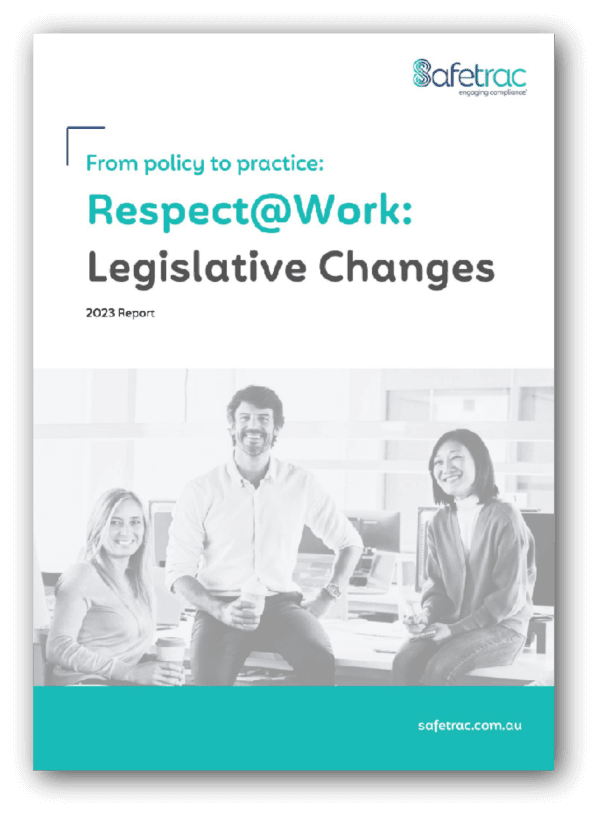In the realm of reality television, where captivating narratives often take centre stage, a recent episode of Below Deck Down Under has cast a harsh spotlight on a grave reality that extends far beyond the entertainment industry. The revelations of two sexual misconduct incidents involving staff members on the show have not only sent shockwaves through the audience but have also served as a stark reminder that workplaces, even those glamorously depicted on screen, can harbour the dark shadows of workplace harassment and assault.
Available on streaming services Hayu and 7Plus, episode 7 of the popular reality show, Below Deck Down Under, unveils the moments that Captain Lee Rosbach, a respected figure, faces a serious situation with two cases of crew members’ sexual misconduct coming to light. Crew member Michael was accused of engaging in inappropriate behaviour towards fellow crew-mate Amy, shaking the yacht’s atmosphere. Another incident involving crew members Wes and Karly was also revealed, highlighting the distressing prevalence of such situations, even in glamorous settings.
As the episode unfolded, Captain Lee Rosbach’s leadership skills were tested as he navigated addressing the situation while maintaining yacht order. Thankfully, no one was seriously harmed, and the cast and crew members intervened at the right time.
Although the positive duty to prevent sexual harassment in a workplace lies with an employer, every single person in a workplace is responsible for their own behaviour. Engaging in sexual harassment may amount to a crime, and it can also breach your work health and safety obligations as an employee.
The unfolding of these distressing events underscores a critical need for organisations and their people, whether on land or at sea, to uphold their ethical and legal responsibilities.
Workplace sexual harassment goes beyond physical actions
In Australia, there are laws to stop sexual harassment at work. These laws are mainly contained in the Sex Discrimination Act 1984, recently updated by a suite of Respect@Work Act amendments. Sexual harassment is when someone does things of a sexual nature that you don’t want, making work feel uncomfortable or scary. It’s not just about the physical – it can be words, looks, or messages too.
Here are some examples of the types of behaviour that can be sexual harassment at work:
- Showing sexual pictures or videos
- Making comments or jokes about things of a sexual nature
- Sending messages or pictures that are too sexual
- Spreading rumours about someone’s private life
- Asking personal or sexual questions
- Staring at someone in an inappropriate way
Remember, it’s not just about physical stuff – if something makes you feel bad because of your gender, how you identify, or who you like, it could be sexual harassment.
In Australia, bosses must make sure there’s no sexual harassment at work, with new laws now stating that they have a positive duty to prevent sexual harassment in the workplace. We all have to follow the rules in the Sex Discrimination Act, and other laws like the Work Health and Safety Act. These laws say that your workplace should be safe and healthy, both physically and psychologically.
The laws state that we all have obligations surrounding sexual harassment at work.
Whilst leaders must demonstrate measures to prevent sexual harassment, staff must ensure that they behave appropriately towards each other, and that they aren’t putting others at risk of physical or psychological harm through unwelcome conduct.
In Australia, the recent updates to the Sex Discrimination Act 1984 have firmly established a positive duty for employers and persons who conduct a business or undertaking (PCBUs) to take steps to eliminate sexual harassment.
This legal development represents a significant shift towards fostering a culture of respect, safety, and accountability in workplaces, regardless of their industry or visibility.
A positive duty of care means that employers must take proactive steps to prevent and address workplace sexual harassment. It’s about creating a secure and respectful environment where everyone feels safeguarded. Mere avoidance of harassment is insufficient; it necessitates active measures to prevent and halt such behaviour.
Leaders and managers need to set the course
One glaring revelation from the Below Deck Down Under episode is the vital role that leadership plays in shaping the behaviour and attitudes within an organisation.
At Safetrac, Australia’s leading compliance training provider, we recognise that leadership is not solely about issuing directives but about setting an example through actions and fostering an environment where every individual feels valued and protected.
Leadership extends beyond the confines of the boardroom; it’s a guiding force that permeates every level of an organisation, including the realm of reality television. Just as captains of a ship bear the responsibility for the safety and well-being of their crew, producers and executives behind reality TV shows must similarly uphold a duty of care towards the participants. This duty goes beyond mere ratings and entertainment value—it encompasses the physical and emotional well-being of every individual involved.
Creating a culture rooted in respect, accountability, and compliance begins with leadership. It’s crucial for leaders to stay connected with the organisation’s heartbeat – understanding its current state, the actions taken to prevent inappropriate behaviour, and the firm stance against any such conduct.
Australia is taking serious action to put a stop to this kind of behaviour
With recent updates to sex discrimination legislation and Work Health Safety and Occupational Health Safety laws, the Australian Government is intensifying efforts to prevent workplace sexual harassment.
To support this, the Australian Human Rights Commission (AHRC) has been granted greater authority to regulate these areas. Like other regulatory bodies, AHRC can monitor compliance, review reports, and impose penalties. From December 2023, these powers will be increased further.
This is significant because anyone facing workplace sexual harassment can report it to the AHRC, which may investigate and take measures to ensure that companies follow the rules. Companies must act promptly, adhere to the Sex Discrimination Act, take preventive steps, educate employees, and continually reassess the effectiveness of their anti-harassment actions.

From scripted reality to tangible change
The shocking incidents highlighted in the episode serve as a poignant reminder that even when cameras are rolling, workplaces are present, and their dynamics carry real-world implications. The entertainment industry, often celebrated for its ability to transport audiences to different worlds, also has a duty to reflect the values and standards that society upholds.
As the seas of change continue to churn, it’s imperative that workplaces, whether portrayed on reality TV or not, acknowledge their role in shaping societal norms. The Respect@Work amendments propels us towards a future where every workplace, both on screen and off, cultivates an environment where individuals can flourish without the fear of harassment or assault.
The distressing events portrayed in the recent episode of Below Deck Down Under serve as a wake-up call to the pervasive nature of workplace dynamics, even in the unscripted world of reality television. This unsettling revelation underscores the importance of strong leadership, which must not only steer the ship towards success but also ensure the safety and well-being of every crew member, on-screen and behind the scenes.
It also showcases the importance of educating and training your staff on what is considered sexual harassment, what the law says about your responsibilities as an employee or employer, surveying your organisation to identify risks, the consequences individuals could face in breach of these laws, and the importance of boosting a culture of compliance.
As Australia progresses towards a culture of respect and accountability with the Respect@Work amendments, it is our collective responsibility to champion a new era where every workplace, whether real or televised, becomes a bastion of inclusivity, dignity, and safety.

Looking to understand your obligations as an employer or employee?
Our Respect@Work white paper provides a detailed explanation of each legal change brought about by the Respect at Work Act 2021, the Respect at Work Act 2022, and state and territory occupational/health and safety legislative changes. In addition, it covers what your organisation needs to do today, to ensure they’re implementing reasonable measures and preventing sexual harassment in the workplace. Download it here.
Please note: This article aims to raise awareness about workplace sexual harassment. The publisher of this blog, Safetrac, is not a counselling or reporting service.
If you or someone you know is experiencing workplace sexual harassment, we urge you to contact the relevant Australian authorities or organisations that specialise in handling such issues. Reach out to the Australian Human Rights Commission, Fair Work Commission, or your state’s workplace health and safety regulator for guidance and assistance. Your well-being and safety are crucial, and there are resources available to support you through these challenges.

